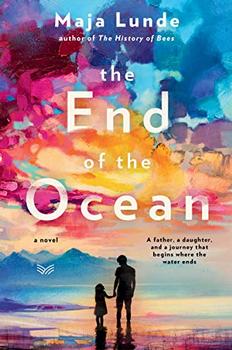Summary | Excerpt | Reviews | Beyond the Book | Readalikes | Genres & Themes | Author Bio

I lean my head against the bus window, look at the changes. The area is more built up, the buildings closer together; a new construction project consisting of white prefabricated houses with small windows clings tenaciously to the hillside. The bus passes the indoor swimming pool. It has a new roof and there is a big blue sign at the entrance: Ringfjord–Water Fun. Everything sounds better in English.
The bus climbs upward, inland, and a couple of the young people get off at the construction site at the top, but most of them remain seated. We ascend, the road changes, narrows, becomes full of potholes, at almost the exact same time we drive into the neighboring municipality. This is where most of the young people get off. Apparently they still don't have a high school out here, still don't have an indoor swimming pool, here in the town of Eidesdalen, the little brother, the loser.
I get off with the last of the young people, stroll slowly through the center of the village. It is even smaller than I remember. The general store has been shut down. While Ringfjorden has grown, Eidesdalen is a fraction of its original size. But it's not for Eidesdalen's sake that I have come today, I can't cry for Eidesdalen anymore—that battle is over, it ended many, many years ago. It is now the ice that has brought me here, Blåfonna. I take the dirt road leading to the mountain.
Even the national newspapers write about it. I have read the articles again and again and can hardly believe the words. They are extracting ice from the glacier, pure, white ice from Norway, and marketing it as the most exclusive ingredient: to be put in a drink, a floating mini-iceberg, surrounded by golden liquor. But not for Norwegian customers, no—it is for those who have really deep pockets. The ice is to be shipped to desert nations, the homes of oil sheiks, and there it will be sold as if it were gold, white gold, to the wealthiest of the wealthy.
It starts snowing, winter's final spasm, April's way of thumbing its nose, as I climb toward the mountain. There are little pools of frozen water on the road, rimmed with crystals. I put my foot down against the thin surface ice covering a small puddle, shatter it, hear it break—but it's no fun any longer, not the way it once was.
I grow short of breath. It's steep and farther than I remember.
But I finally reach it, finally I see the glacier. Dear, dear Blåfonna.
All glaciers melt, I know that, but it's something else witnessing it. I stop, just breathe. The ice is still there, but not where it used to be. When I was a little girl, I walked from the edge of the glacier almost all the way to the mountain cliff where the waterfalls disappeared below, where the glacier and the waterfalls were connected. But now the glacier is located high up on the mountainside. It's a long way, one hundred meters perhaps, between the cliff and the blue tongue. The glacier has moved, as if trying to escape, get away from humans.
I continue climbing through the heather. I have to feel it, have to walk on it, touch it again.
Finally I have ice under my feet, every step makes noise, a slight crunching sound. I keep going and now I can see the extraction area, the gouges in the grayish-white glacier, and deep gashes in the blue interior, where the ice has been cut away. Beside it there are four large white bags that are full, ready for pickup. They use chain saws, I've read, chain saws that are not lubricated, so the pieces of ice won't be sullied by oil.
Nothing should surprise me anymore, all the things human beings do. But this, this tears something open inside of me, because Magnus must have sat at a board meeting and smilingly approved this, maybe even applauded it.
I walk closer. I have to climb to come right up against it, as the gouges were made where the glacier is the steepest. I take off one mitten and place my hand against the ice—it is alive beneath my fingers, my glacier, a huge, calm animal that sleeps. But it is a wounded animal and it can't roar—it is being drained minute by minute, second by second, it is already dying.
Excerpted from The End of the Ocean by Maja Lunde. Copyright © 2020 by Maja Lunde. Excerpted by permission of Harper Via. All rights reserved. No part of this excerpt may be reproduced or reprinted without permission in writing from the publisher.




The only real blind person at Christmas-time is he who has not Christmas in his heart.
Click Here to find out who said this, as well as discovering other famous literary quotes!
Your guide toexceptional books
BookBrowse seeks out and recommends the best in contemporary fiction and nonfiction—books that not only engage and entertain but also deepen our understanding of ourselves and the world around us.